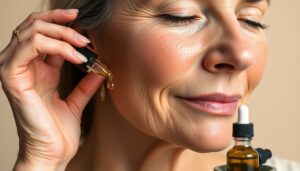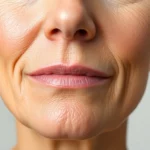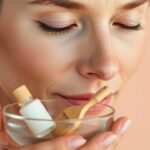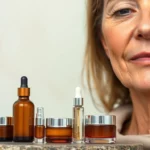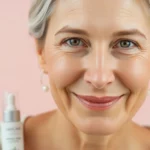You look in the mirror and notice a touch of dullness here, a fine line there. Are those wrinkles deepening? It’s time to focus on your complexion. Skin serums can combat the first signs of aging, but not all serums are created equal. Choosing the right one matters!
This guide covers essential ingredients, skin types, and what to look for in a serum. We’ll help you navigate the world of skin serums to refresh and restore your skin’s youthful glow.
The Science of Aging Skin — You Are What You Lose
Aging skin undergoes biological changes that lead to wrinkles, sagging, and dullness. Understanding these changes can help you choose the right products.
The Function of Collagen and Elastin
Collagen and elastin keep skin plump and elastic. As we age, our bodies produce less of these proteins, leading to sagging and wrinkles. After age 20, collagen production decreases by about 1% per year. Look for products that boost collagen and elastin.
Oxidative Stress and Free Radical Damage
Environmental factors like pollution, sun exposure, and smoking create free radicals, which cause oxidative stress. Antioxidants neutralize free radicals, protecting your skin. Serums with antioxidants can help combat this damage.
The Importance of Hydration
As we age, our skin loses its ability to retain moisture. Hydrated skin looks plumper and younger. Incorporating hydrating ingredients into your routine is essential for mature skin.
Essential Age-Defying Serum Ingredients
The best anti-aging serums contain powerful, scientifically-backed ingredients. Here’s what to look for:
Retinoids: The Gold Standard
Retinoids, including retinol and tretinoin, are the gold standard for anti-aging. They boost collagen production and speed up cell turnover, improving skin tone and reducing wrinkles. Start slowly to avoid irritation, and always use sunscreen during the day.
Hyaluronic Acid: The Hydration Hero
Hyaluronic acid is a humectant that attracts water to the skin, plumping it and smoothing fine lines. It’s ideal for dry or mature skin.
Vitamin C: The Brightening Powerhouse
Vitamin C is an antioxidant that brightens the complexion and boosts collagen production. Look for forms like L-Ascorbic Acid or Sodium Ascorbyl Phosphate.
Peptides: The Foundation of Youth
Peptides signal your skin to produce more collagen, firming the skin and minimizing wrinkles. Different peptides offer various benefits, making them a versatile ingredient.
How to Pick a Serum for Your Skin Type
Your skin type determines how your skin reacts to serum ingredients. Here’s how to choose the right serum for your needs:
Serums for Dry and Sensitive Skin
Look for gentle, hydrating serums with ceramides, hyaluronic acid, and squalane. These ingredients soothe and moisturize dry, sensitive skin.
Serums for Oily and Acne-Prone Skin
Opt for lightweight, non-comedogenic serums with ingredients like salicylic acid, niacinamide, and tea tree oil to control oil and prevent breakouts.
Serums for Combination Skin
Choose serums with hyaluronic acid and antioxidants to balance different areas of the face. These ingredients address multiple concerns simultaneously.
How to Use a Serum in Your Skincare Routine
Applying serum correctly maximizes its effectiveness. Follow these steps for the best results:
Morning or Night: When to Use Serum?
Use antioxidant serums in the morning to protect your skin from environmental damage. Apply retinoid serums at night when your skin repairs itself.
How to Layer Serums — and When Not to
Some ingredients work well together, while others can cause irritation. For example, Vitamin C and Ferulic Acid enhance each other’s effects. Avoid combining retinoids with AHA/BHA, as this can irritate your skin.
The Proper Order of Application
Start with the thinnest products and finish with the thickest. Cleanse, tone, apply serum, moisturize, and finish with sunscreen in the morning.
Factors Affecting Skin Aging in Everyday Life
Your lifestyle significantly impacts your skin’s health. Here’s how to slow down aging:
Diet and Hydration
Eat a balanced diet rich in vitamins and antioxidants. Stay hydrated to maintain skin elasticity and health.
Sun Protection
Wear broad-spectrum sunscreen (SPF 30 or higher) daily to prevent premature aging caused by UV rays.
Sleep and Stress Management
Get enough sleep and manage stress through exercise, meditation, or hobbies. Both practices improve skin health.
Conclusion
Choosing the right anti-aging serum involves considering ingredients, skin type, and lifestyle. Build a comprehensive skincare routine and experiment with different serums to find what works best for you. Take the first step toward healthier, younger-looking skin today!


